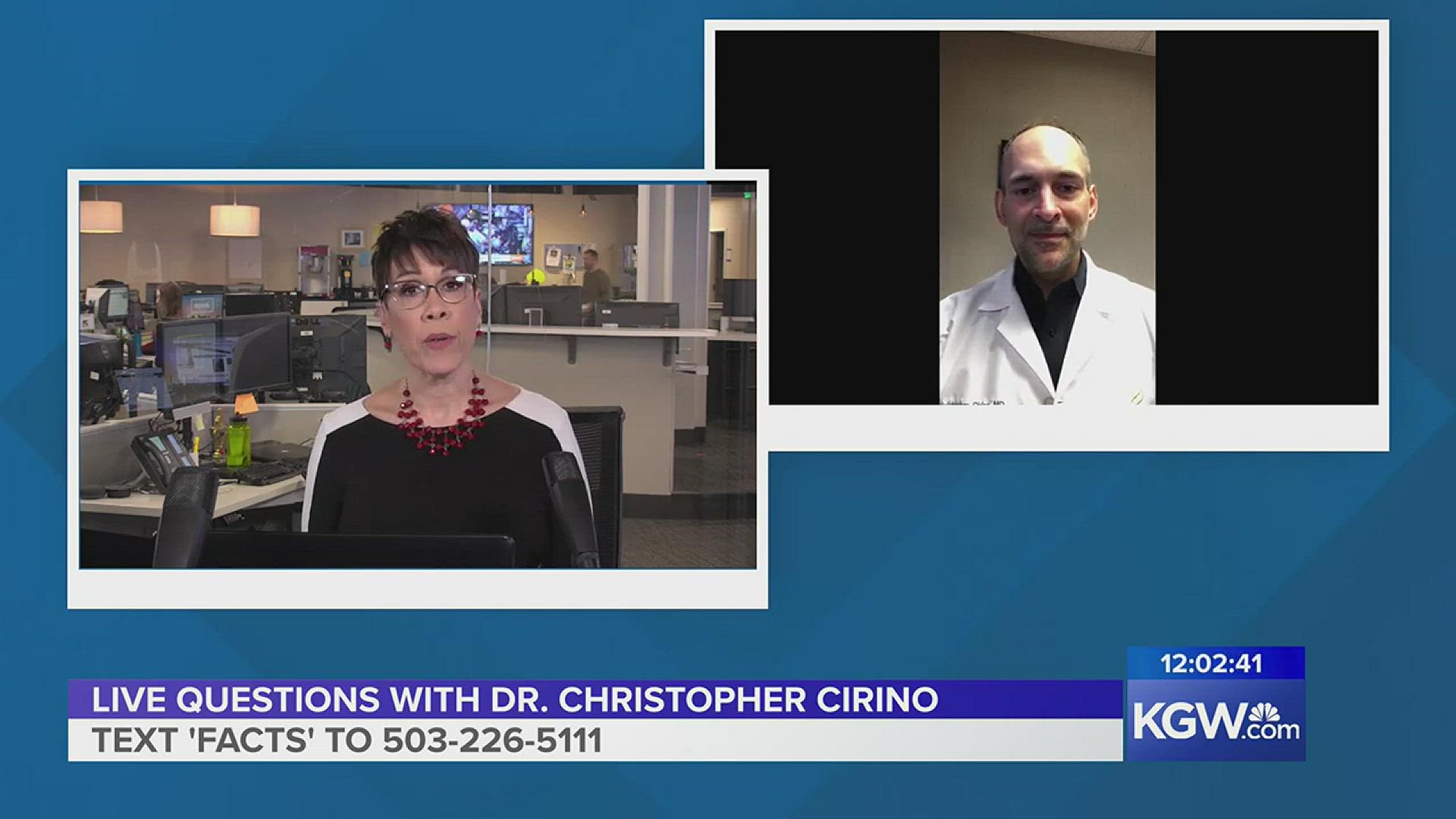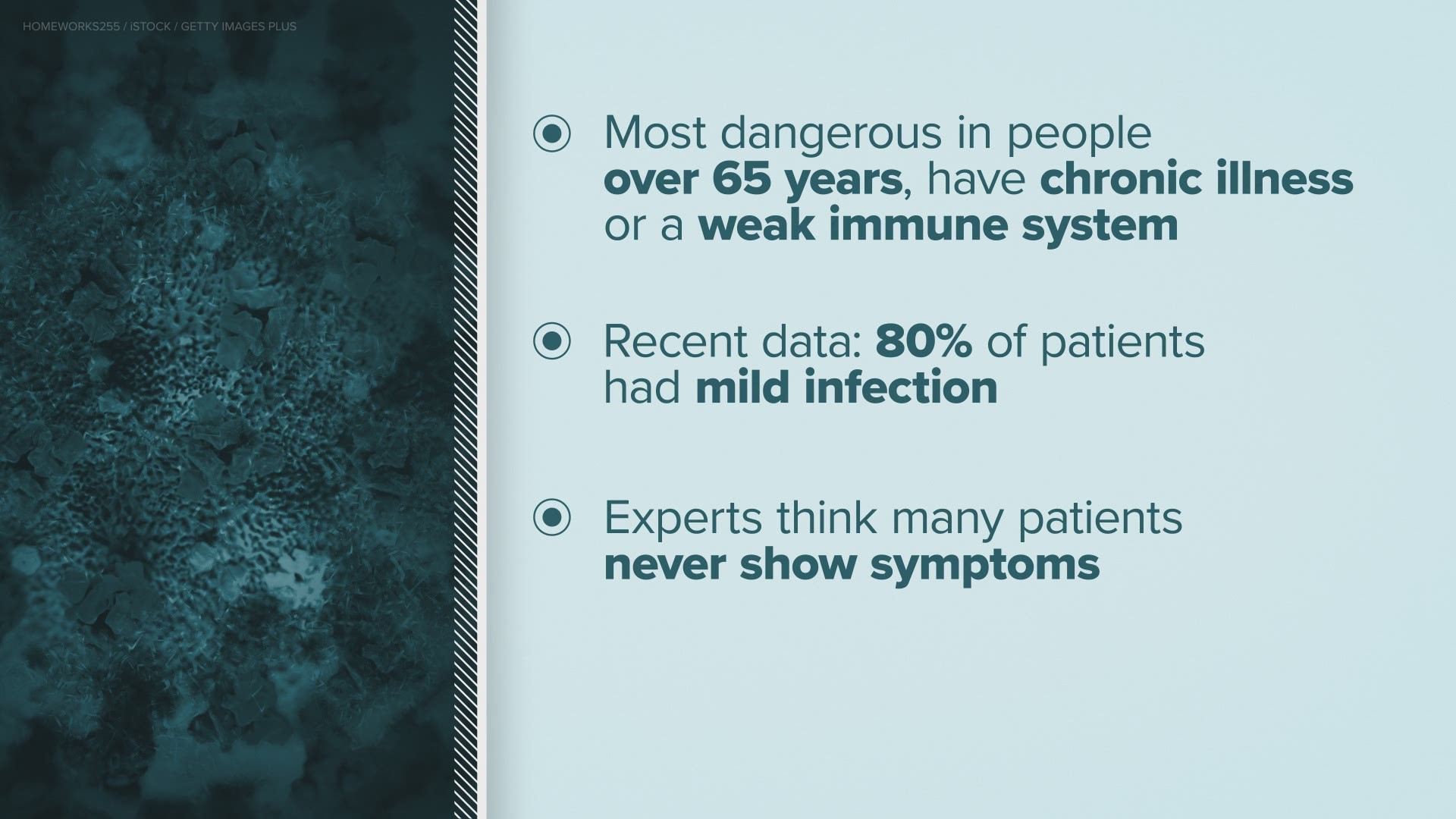PORTLAND, Ore. — With so much new information coming out every day about the novel coronavirus, also known as COVID-19, we wanted to get your questions answered by an expert.
So, KGW anchor Brenda Braxton had a 30-minute interview with Dr. Christopher Cirino, an infectious disease specialist with Adventist Health. He spent the time answering questions you sent us via text. You can still text your questions to 503-226-5111 and those questions may get answered on TV or online. If you text “facts” to that number, you’ll be sent a link to KGW’s coronavirus coverage.
What should people know as an overview of coronavirus?
I think it’s important we focus on context. With news, we often talk about deaths. I think it’s also important to bring up that most people will have a very mild disease that is similar to a common cold. On the other side, if there are six fatal cases in Washington, as we know now, there has probably been local spread that has been occurring for several weeks. As more testing becomes available in local areas, we may learn that there are more cases.
Can regular flu turn into coronavirus?
That would not be possible because the flu is caused by the influenza virus. People may be thinking about how coronavirus can cause flu-like symptoms. But these are two separate viruses.
What are symptoms of coronavirus?
The general symptoms are similar to other viral infections that affect the respiratory tract. Runny nose, cough, sore throat sometimes, nausea as well. Sometimes we can see problems with breathing in moderate and severe cases. The symptoms are pretty widespread, very similar to other viral respiratory infections.
What steps should I take if my immune system is weakened?
The steps should be similar to what you would normally do during flu season. Vigilant handwashing, some social distancing where you would avoid someone who is sick. Certainly, avoiding handshaking makes sense.
How long will see the effects of this virus strain?
I don’t think we can predict that. There are probably a couple scenarios that could happen. China’s case reporting has diminished as far as the frequency of new cases. Meanwhile, we’re seeing spikes in South Korea, Italy and Iran. When that happens, there’s an increased risk of transmission. That may happen in the US where we’ll have occasional cases or we’ll have mini-outbreaks. At least now we’re vigilant and our awareness is higher. We also have testing more readily available at the state level, rather than waiting to send everything to the CDC. As we start getting a handle on the number of cases and getting people diagnosed sooner, I think we’re going to have a better understanding of how this outbreak is going to take place in the US.
What do we know about people who contract coronavirus, but then get better?
The majority of people who have coronavirus will get better without any long-term effects. About 82% of cases tend to be mild. What we see is their symptoms diminish over five to seven days. They’re still capable of transmitting the disease. But that’s how it will play out for most people. When you look at people who have higher risk, including heart disease, diabetes, asthma and other vascular disease problems, they’re going to be at higher risk of having a more severe disease.
If I become sick and need to be hospitalized, how do I contact authorities for instructions on what to do?
If you become sick, the most important thing is to think about how sick you are. If you have mild symptoms, you should stay home and manage this out. The concern is we have two different issues: one is the individual and one is the community. We want to avoid spreading this to the community. The last place to go to if you have a mild disease is the clinic or the emergency room. Nevertheless, if you have a more severe symptoms, it’s important to talk to a hospital triage system. When someone gets to the point where they’re sick enough, the hospital will decide to admit the person. In that case, the infection control team, an infectious disease specialist like myself, will contact the state health department so we can then facilitate getting a test done.
What are symptoms and risk for infants? Are they different from the general population?
Unfortunately, we don’t have infants telling us they’re sick so it’s a little harder to evaluate. As you would expect with a respiratory tract infection, you would see nasal congestion and maybe some increase in irritability. From what we know through this epidemic, for the most part, there haven’t been any deaths in children and infection has generally been milder for children.


